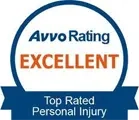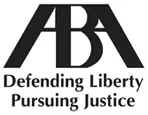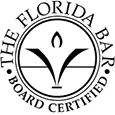Are Rental Cars Required to Provide Child Seats in Florida?
When traveling with young children, ensuring their safety in a rental car becomes a top priority. Florida law mandates that all children aged 5 and under must be secured in a federal crash-tested child restraint device—whether it’s a separate carrier, integrated seat, or booster seat.
But what happens when you rent a vehicle? Is the rental company responsible for providing that seat, or is it your responsibility to bring your own?
This blog tackles the common question: Are rental car companies in Florida legally required to provide car seats? We’ll explore what the law says, what practice looks like in the real world, and what steps you can take to protect your child and stay compliant while traveling.
Whether you’re flying in for a visit or need a car for vacation, knowing what’s expected—and what’s available—can help you avoid legal issues and unnecessary risk.
Let’s dive into how these regulations apply and what parents and caregivers should consider before driving off with young passengers.
Florida’s Child Restraint Law: What the Statute Says
Florida law is clear when it comes to child passenger safety.
According to Florida Statute § 316.613, all children aged 5 and under must be secured in a federally approved child restraint device while riding in a motor vehicle.
Children under 3 must be in a separate carrier or vehicle-integrated seat, while those aged 4 to 5 can use a booster seat. These laws apply regardless of whether the vehicle is privately owned or rented.
However, the statute does not explicitly state that rental car companies must provide child seats by default. 
The legal obligation to follow the law falls on the driver or parent, not the rental agency. That means it’s the renter’s responsibility to ensure the child is safely secured in the proper seat, whether they bring one from home or request one from the rental company.
Failure to comply can result in fines, points on your license, and—more importantly—increased danger to your child in the event of a crash. For families renting a car in Florida, understanding the legal baseline is essential. Simply assuming a car seat will be included can lead to last-minute stress or even unsafe driving conditions.
Do Rental Car Companies Offer Car Seats?
While not legally obligated to provide child safety seats, most major rental car companies in Florida do offer car seats for rent. Brands like Hertz, Enterprise, and Avis typically stock infant, toddler, and booster seats for an additional daily fee. These rentals are meant to provide convenience for traveling families, especially those flying into the state who cannot bring their own equipment.
However, these seats are subject to availability, and you often need to reserve them in advance to guarantee one will be waiting for you. Even then, the quality and cleanliness of rental car seats can vary. Some parents report dissatisfaction with the condition or age of the seats provided, which raises safety concerns.
It’s important to note that just because a car seat is offered doesn’t mean it’s installed correctly. Rental agencies generally won’t install seats for liability reasons, meaning it falls on the parent or caregiver to ensure the seat is secured properly. Bringing your own or using a seat from a trusted third-party provider may be the safest option if you’re unsure about relying on a rental seat.
Your Responsibilities as a Renter With Children
As a renter, it’s your legal and moral responsibility to ensure that every child under your care is riding safely in accordance with Florida’s child restraint laws.
This responsibility doesn’t shift just because the vehicle belongs to a rental agency. Before arriving to pick up your rental, you should already have a plan for how you’ll secure any children who require safety seats.
If you’re traveling with your own car seat, confirm that the rental vehicle you’re choosing is compatible.
Not all rental sedans have enough room for rear-facing or larger car seats. If you’re relying on the rental company for a child seat, call ahead and confirm availability. Simply checking a box on a website form is not a guarantee.
You should also inspect the seat upon pickup. Make sure the straps aren’t frayed, the seat isn’t expired (most have a 6–10 year shelf life), and no pieces are missing.
If you’re unsure how to install it, consult the manual or find an online video from the manufacturer. Your child’s safety hinges on more than availability—it depends on proper use.
The Risks of Improper or Missing Child Seats
Choosing not to use a proper child restraint system—or using one incorrectly—can significantly increase the risk of injury or death in a crash. Children are particularly vulnerable in auto accidents due to their smaller bodies and developing bones and organs. Without the proper car seat or booster seat, even a low-speed collision can cause life-threatening injuries.
Improper installation is another issue. A seat that’s too loose, at the wrong recline angle, or with misrouted belts may not function as intended during impact. Sadly, many injuries sustained in rental vehicles could have been prevented with the correct use of safety restraints. This is especially true in unfamiliar rental vehicles where parents may be in a rush or unaware of how the car’s seatbelt systems differ.
If your child is injured due to the absence or malfunction of a rental car seat—or due to faulty equipment you were provided—you may have legal options. However, determining liability can be complex, especially if multiple parties are involved. Speaking with a personal injury lawyer familiar with Florida traffic laws can help you understand whether you have a valid claim and what steps to take next.
Travel Tips for Families Renting Cars in Florida
Planning ahead is key to ensuring your child’s safety when renting a car in Florida. If you’re flying into the state, consider bringing your own car seat as carry-on or checked luggage. Most airlines allow one car seat per child at no additional cost. This guarantees you’re using a seat you trust, one that fits your child properly and that you know how to install.
If you must rent a car seat, reserve it ahead of time and call the rental location to confirm availability. Don’t assume it will be waiting for you. Also, arrive early to inspect the seat and test installation. If it appears damaged, expired, or unsafe in any way, ask for a replacement or consider sourcing one from a nearby retailer.
You might also want to research third-party baby gear rental services, which offer high-quality, thoroughly sanitized child seats delivered to your destination. Many parents find this to be a safer and more reliable alternative to depending on the rental car agency.
Florida’s roads are busy and often include high-speed highways. Taking the time to secure your child properly before leaving the lot is a simple step that can make all the difference if the unexpected happens.
When You May Need a Lawyer
While most rental car experiences are uneventful, there are situations where legal help may become necessary. For example, if your child was injured in a crash while riding in a rented vehicle—especially one involving a defective or poorly maintained child seat—you may want to explore whether the rental company failed in its duty of care.
There’s also the possibility that another driver caused the crash, and your child’s injuries were made worse due to the absence or failure of a proper safety seat. In such cases, liability might be shared between multiple parties, including the rental agency and the at-fault driver.
Personal injury attorneys can help investigate these scenarios. They may examine the accident report, inspect the car seat, check its maintenance history, and determine whether the seat was expired or improperly stored. Depending on the facts, you may be entitled to compensation for medical bills, pain and suffering, and emotional distress.
Legal claims involving children are often handled with special attention in Florida courts. Consulting a lawyer doesn’t mean you’re filing a lawsuit—it means getting answers and clarity. The sooner you act, the easier it will be to gather evidence and protect your family’s rights.
The Burden of Proof in Child Injury Claims Against Rental Companies
If your child was injured due to a missing or defective car seat in a rental car, and you’re considering legal action, you should understand how the burden of proof works in civil cases like these.
In Florida, the burden is on the claimant—the person bringing the lawsuit—to prove that the defendant’s negligence directly caused the injury.
That means it’s not enough to show your child was hurt. You’ll need to establish that:
- The rental company owed your family a duty of care.
- That duty was breached (e.g., by failing to provide a proper child safety seat or by supplying a faulty one).
- That breach was a direct cause of your child’s injuries.
- Damages were suffered (medical bills, pain and suffering, etc.).
Evidence might include rental contracts, maintenance records, photos of the car seat, medical reports, and expert testimony. A personal injury attorney can help collect and present this evidence in a compelling way.
Rental car companies may deny responsibility or attempt to shift blame, so having legal support can make a meaningful difference when trying to prove your claim.
Filing a Claim Costs You Nothing—But Walking Away Might
If you’re unsure whether you have a strong claim after a rental car incident involving a child safety seat, it’s important to remember: filing a claim carries no financial risk.
Many parents hesitate to pursue compensation out of fear that it’s costly, time-consuming, or unlikely to succeed. In reality, personal injury attorneys often work on a contingency fee basis—meaning you don’t pay unless your case wins or settles.
Filing a claim can uncover serious lapses in safety and protect other families from the same danger. It can also cover costs like medical bills, therapy, and future care that you shouldn’t have to shoulder alone. More importantly, it opens the door to accountability. Rental companies and manufacturers should be held responsible when their negligence endangers children.
Without a claim, you risk settling for nothing—or accepting whatever the insurance company offers. With a claim, you take the first step toward recovering what you and your child may be rightfully owed. There’s no harm in reaching out for legal advice, and everything to gain if your case is valid.
Call Boohoff Law for a Free Consultation
If your child was injured in a rental car accident involving a missing or defective safety seat, it’s important to understand your legal rights. Boohoff Law has experience handling personal injury claims across Florida and can help guide your family through this difficult situation.
We offer free consultations and are available by phone, video, or in-person to discuss your case. Whether you’re unsure who’s responsible, need help gathering evidence, or just want honest guidance—we’re here to help.
Call (813) 445-8161 in Tampa, (813) 321-7878 in Brandon, (941) 888-0848 in North Port, or (877) 999-9999 in Seattle.
There’s no cost to speak with us, and you won’t pay anything unless we’re able to help you recover compensation. Don’t let confusion or legal red tape stop you from taking action—your child’s safety and well-being come first. Let us help you move forward.
Frequently Asked Questions (FAQs)
Do rental car companies have to provide child car seats in Florida?
No, they are not required to provide them by law, but most offer car seats for an additional fee. However, they are expected to provide safe, usable seats when offered.
What if the car seat provided was defective or improperly installed?
You may be able to hold the rental company liable if the defect or poor installation contributed to your child’s injuries. Evidence such as photos, receipts, and witness statements can help build your case.
Can I sue a rental company even if I signed a waiver?
Possibly. Waivers don’t automatically shield companies from negligence claims — especially if the waiver was unclear or didn’t cover the issue at hand.
What types of damages can I seek in a child injury claim?
Compensation may include medical costs, pain and suffering, emotional distress, and future care expenses depending on the severity of the injuries.
How long do I have to file a claim in Florida?
The statute of limitations for personal injury in Florida is generally two years, but there are exceptions involving children. It’s best to consult a lawyer as soon as possible.











